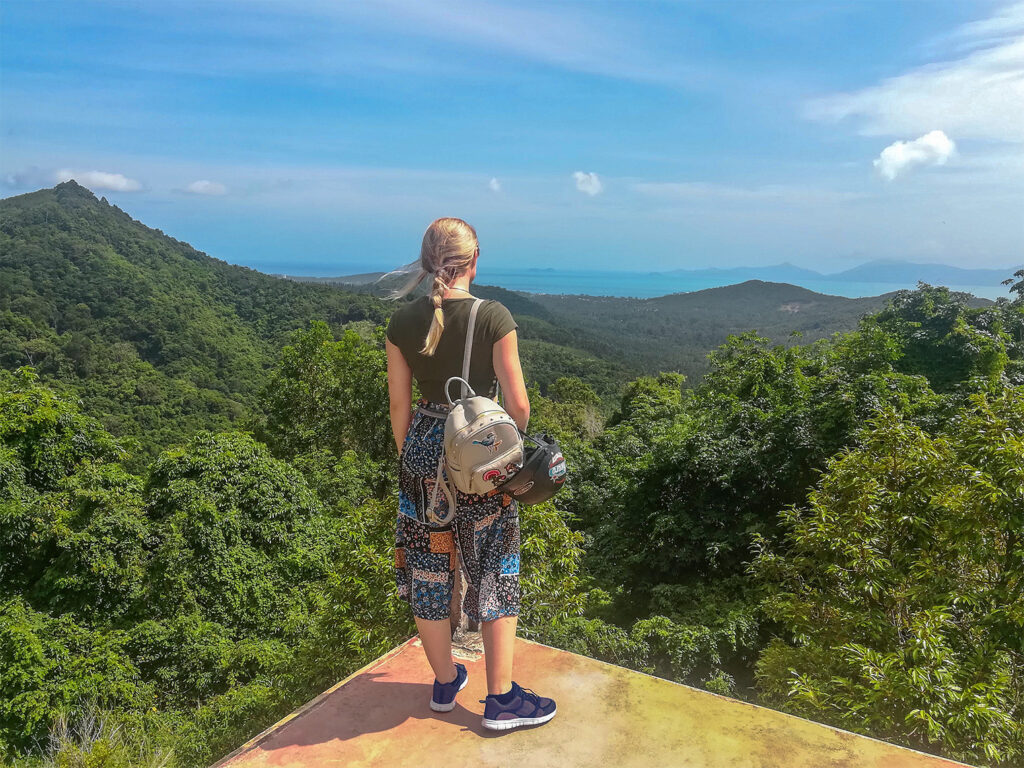Keywords explained
This is often agreed to be the overarching term for all things sustainable, ethical and eco-friendly travel. Conscious travel is about minimising your negative impact on the places and communities you visit while actively being more aware of and educated on the local traditions, cultures, environment and more.
Green tourism at first only concerned the environment and protecting it on our travels. It has now expanded to include the three pillars of conservation, communities and interpretation – the idea that we appreciate the local culture and environment. It is now usually referred to as Ecotourism.
Ethical travel is very similar in meaning to the previous terms, with a strong focus on minimising ethical issues. This could include social injustice, human rights, culture appreciation, protecting vulnerable communities and conservation efforts.
When something is carbon neutral, the emitted carbon equals the absorbed carbon in the atmosphere. When you see this term in the travel industry, it is usually referring to reducing your carbon footprint through e.g. minimising flying, choosing green companies, donating to conservation efforts,…
Fairtrade sets out to provide better working conditions and deals for local farmers and workers, especially in developing countries. Fair Trade Tourism is similar to the fair trade logo, providing a certification to ensure business align with certain sustainable travel practices.
What is sustainable travel?
Essentially, sustainable travel is about minimising your impact on your travel destinations, from local communities to wildlife and the environment. It means adapting travel and tourism so that it can be sustained long-term without any harm to the areas visited.
Sustainable travel is also about creating positive impact, including job creation , wildlife preservation, cultural appreciation and more.
In the simplest terms, you want to protect and sustain these three pillars at any destination:
Environment
Society
Economy
Why is sustainable travel so important?

Travel demand has rapidly recovered since the Covid pandemic and numbers are continuing to grow exponentially. This summer, Europe has been hit by a record number of holiday makers, causing much of Greece and Italy to feel overrun and straining its infrastructure and local people.
Europe is only one of many examples. In 2015, the Great Barrier Reef in Australia made headlines as the overtourism in the area caused the reef to die and strict rules had to be put in place. In 2018, Maya Bay in Thailand was closed after the insane crowds damaged marine life and coral reefs.
In cases like these, the negative effects of tourism are overtaking any positives, such as income. Local communities and wildlife are actively being harmed and travel has a hugely negative impact.
Any traveller should know the basics of sustainable travel to prevent things like these from happening. We visit foreign places to explore their natural beauty and local culture & traditions, it is our duty to make sure they are still around for long after we leave.
The up to date saying should be “leave no footprints” – your visit should not affect the destination, environment and locals in any negative way.
How can I travel more sustainably?
There are many things you can do and changes you can make to travel more sustainably. From small changes such as switching to reef-safe sunscreen to bigger changes such as minimising air travel as much as possible.
The number one thing when it comes to sustainable travel is listening to the local communities, governments and travel guidelines. If a country or city asks you not to visit right now or during a certain period of the year, don’t visit. If natural habitats are closed for preservation, do not go there anyway. If animals aren’t to be touched or fed in order to protect them, listen. Rules are in place for a reason and as sustainability is now on the forefront of any tourism board, more rules will come into place.
If possible, try and visit places during the off-season to avoid overtourism in peak season and allow locals to make a living year-round. In addition, travelling slower is a great way to travel more sustainable. This way, you are able to connect closer with the local communities while minimising your footprint by travelling a country via public transport.
Another way to travel sustainably is to volunteer with local communities. By that, I don’t mean voluntourism – where you go to developing countries to build schools or something like that. The rule of thumb with that is that if you aren’t trained to do it in your own country, don’t go to a third world country to do it. You will do way more harm than good.
I mean sites like Worldpackers or Workaway, where local businesses or people post work exchanges for accommodation and sometimes food. It is an excellent way to both support the local community and minimise your footprint as placements are usually around a month. You will also get to know the place you travel to much more intimately and get a real feel of what life is like for locals.
Find more guides and tips and on all things sustainable travel below:

